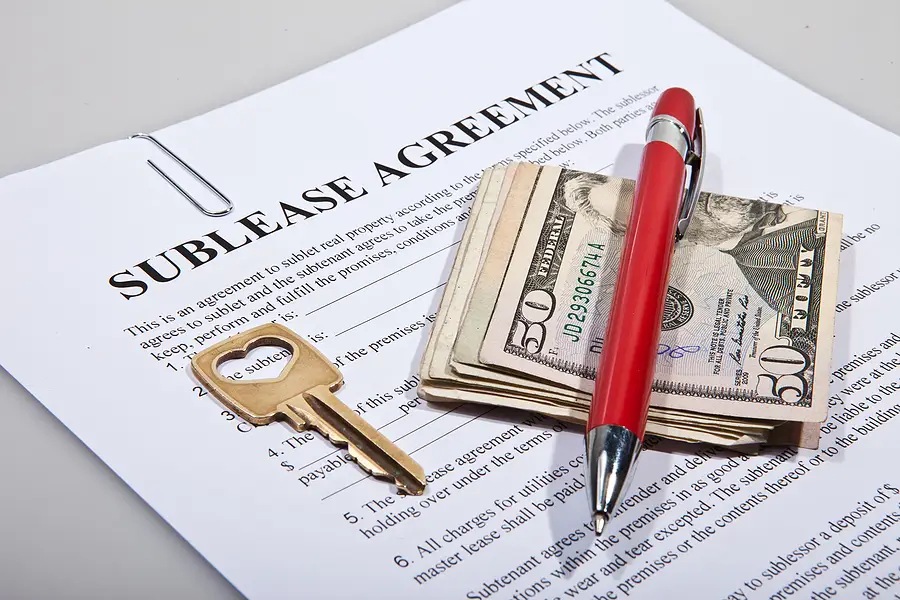As a Reno landlord, you may have asked yourself, "Should I allow subleasing?" Subleasing can offer flexibility to tenants while potentially exposing you, the property owner, to challenges. Whether you're renting out single-family homes, apartment buildings, or other rental units, understanding the benefits and risks is essential before making a decision. Let’s break down the pros and cons of subleasing to help you navigate this complex topic.
The Benefits of Allowing Subleasing
Subleasing involves an original tenant renting out your property or part of it to a new tenant (subtenant) under a sublease agreement. If properly handled, this arrangement can bring several advantages.
- Maintaining Rent Payments
When your original tenant must vacate unexpectedly—whether due to a job transfer or another reason—subleasing ensures that rent payments continue, protecting your income stream. It prevents your rental property from sitting vacant while you search for a replacement tenant. - Flexibility for Both the Tenant and Landlord
Subleasing offers tenants flexibility to fulfill their lease agreement even when life circumstances change. As the landlord, you gain the opportunity to accommodate tenants' needs while maintaining a positive relationship, which can lead to better long-term occupancy. - Reduced Turnover Costs
Subleasing can save you the time and expense of advertising your property and screening potential tenants. When the original tenant takes on the responsibility of finding a reliable subtenant, you reduce the costs of preparing the unit for new occupancy.
The Challenges of Subleasing
While subleasing has its perks, Nevada landlords must also consider potential downsides.
- Limited Control Over Subtenants
A major concern is that subtenants may not uphold the same standards as your original tenant. Issues like damages caused, late rent payments, or violating the original lease agreement can arise if the subtenant isn’t thoroughly vetted. - Legal Risks
Subleasing can lead to legal challenges if it isn’t clearly addressed in the rental agreement. Without the landlord's permission or written consent, subleasing may be considered illegal, exposing you to disputes or even legal action. - Compliance with Local and State Laws
Reno landlords must adhere to Nevada state laws and the Fair Housing Act when navigating subleasing. For example, it's essential to ensure that any rules or restrictions on subleasing are clearly stated in the lease and apply equally to all tenants to avoid legal complications. - Complications with the Sublease Agreement
Sublease agreements must clearly define responsibilities for rent, utilities, security deposits, and damages. Without detailed terms, disputes among the parties involved—landlords, original tenants, and subtenants—can quickly escalate.
How to Protect Yourself When Allowing Subleasing
If you decide to permit subleasing, there are steps you can take to minimize risks:
- Screen Potential Subtenants
Require the original tenant to conduct a background check on the potential sublessee. Alternatively, you can handle the screening process to ensure the new tenant meets your standards. - Create a Clear Sublease Agreement
Ensure the sublease agreement aligns with the original lease agreement and clearly outlines the rights and responsibilities of all parties involved. - Require Written Consent
Make it mandatory for tenants to obtain your written permission before subletting the rental unit. This allows you to review and approve the terms and the subtenant. - Consult a Legal Professional
Review local laws and consult a legal expert to ensure your subleasing policy complies with Nevada regulations and protects your interests.
Weighing the Pros and Cons
Deciding whether to allow subleasing ultimately depends on your comfort level with the risks and your willingness to set up safeguards. Subleasing offers many benefits, such as reducing vacancies and maintaining rent payments, but it also requires careful management and legal oversight.
If you’re unsure how to handle subleasing or need assistance managing your Reno rental property, we’re here to help. At Dickson Realty, our experienced property managers can guide you through complex decisions like subleasing, ensuring your property stays protected and profitable.
Explore more about our services by visiting our Contact Us page or learning how we can help landlords like you thrive in Reno’s rental market.


